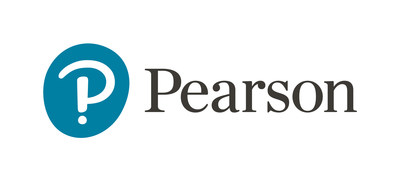Pearson School Report 2025: At least 1.9 million students not ready for their next stage of learning
Pearson (NYSE:PSO) released its 2025 School Report revealing concerning statistics about student readiness in England. The study found that approximately 1.9 million students may not be adequately prepared for their next educational stage, including 1.65 million primary/secondary students and 250,000 college students.
The report, based on feedback from 11,000 teachers and 3,000 students, shows that roughly one-third of primary (32%) and secondary (31%) students, and 43% of college students are not ready for advancement. Key challenges include Special Educational Needs, writing difficulties, and independence at primary level, while self-motivation and social maturity are concerns at secondary level.
The report highlights needs for curriculum reform, including better preparation for AI-driven futures, practical life skills, and flexible assessment methods. Only 9% of teachers feel confident teaching AI-related content, and just 8% believe the education system adequately prepares students for future careers.
Pearson (NYSE:PSO) ha pubblicato il suo Rapporto Scolastico 2025, rivelando dati preoccupanti sulla preparazione degli studenti in Inghilterra. Lo studio indica che circa 1,9 milioni di studenti potrebbero non essere adeguatamente pronti per il loro prossimo livello educativo, comprendendo 1,65 milioni di studenti della scuola primaria/secondaria e 250.000 studenti universitari.
Il rapporto, basato su riscontri di 11.000 insegnanti e 3.000 studenti, mostra che circa un terzo degli studenti della primaria (32%) e della secondaria (31%), e il 43% degli studenti universitari non sono pronti per il passaggio successivo. Le principali difficoltà riguardano bisogni educativi speciali, problemi di scrittura e autonomia nella scuola primaria, mentre la motivazione personale e la maturità sociale sono preoccupazioni a livello secondario.
Il documento sottolinea la necessità di riforme curricolari, includendo una migliore preparazione per un futuro guidato dall'intelligenza artificiale, competenze pratiche di vita e metodi di valutazione più flessibili. Solo il 9% degli insegnanti si sente sicuro nell'insegnare contenuti legati all'IA, e appena l’8% ritiene che il sistema educativo prepari adeguatamente gli studenti per le carriere future.
Pearson (NYSE:PSO) publicó su Informe Escolar 2025, revelando estadísticas preocupantes sobre la preparación de los estudiantes en Inglaterra. El estudio encontró que aproximadamente 1,9 millones de estudiantes podrían no estar suficientemente preparados para su siguiente etapa educativa, incluyendo 1,65 millones de estudiantes de primaria/secundaria y 250,000 estudiantes universitarios.
El informe, basado en la opinión de 11,000 profesores y 3,000 estudiantes, muestra que alrededor de un tercio de los estudiantes de primaria (32%) y secundaria (31%), y el 43% de los estudiantes universitarios no están listos para avanzar. Los principales desafíos incluyen necesidades educativas especiales, dificultades de escritura e independencia en primaria, mientras que la automotivación y madurez social son preocupaciones en secundaria.
El informe destaca la necesidad de reformas curriculares, incluyendo una mejor preparación para futuros impulsados por la inteligencia artificial, habilidades prácticas para la vida y métodos de evaluación flexibles. Solo el 9% de los profesores se siente confiado enseñando contenidos relacionados con IA, y solo el 8% cree que el sistema educativo prepara adecuadamente a los estudiantes para las carreras futuras.
Pearson (NYSE:PSO)가 2025년 학교 보고서를 발표하며 영국 학생들의 준비 상태에 대한 우려스러운 통계를 공개했습니다. 연구에 따르면 약 190만 명의 학생들이 다음 교육 단계에 적절히 준비되지 않았을 수 있으며, 이 중 165만 명은 초·중등학생, 25만 명은 대학생입니다.
11,000명의 교사와 3,000명의 학생의 피드백을 바탕으로 한 이 보고서는 초등학생의 약 32%, 중학생의 31%, 대학생의 43%가 진급 준비가 되어 있지 않음을 보여줍니다. 주요 문제로는 특수 교육 필요, 글쓰기 어려움, 초등학생의 자립성 부족이 있으며, 중등학생의 경우 자기 동기 부여와 사회적 성숙도가 문제로 지적됩니다.
보고서는 AI 중심의 미래 대비, 실생활 기술, 유연한 평가 방법 등 교육과정 개혁의 필요성을 강조합니다. 교사의 단 9%만이 AI 관련 내용을 자신 있게 가르칠 수 있으며, 8%만이 교육 시스템이 학생들의 미래 진로 준비에 충분하다고 생각합니다.
Pearson (NYSE:PSO) a publié son Rapport Scolaire 2025, révélant des statistiques préoccupantes sur la préparation des élèves en Angleterre. L'étude a montré qu'environ 1,9 million d'élèves pourraient ne pas être suffisamment prêts pour leur prochaine étape éducative, comprenant 1,65 million d'élèves du primaire/secondaire et 250 000 étudiants universitaires.
Le rapport, basé sur les retours de 11 000 enseignants et 3 000 élèves, indique qu'environ un tiers des élèves du primaire (32 %) et du secondaire (31 %), ainsi que 43 % des étudiants universitaires, ne sont pas prêts à passer au niveau supérieur. Les principaux défis incluent les besoins éducatifs spécifiques, les difficultés d'écriture et l'autonomie au primaire, tandis que la motivation personnelle et la maturité sociale sont des préoccupations au secondaire.
Le rapport souligne la nécessité de réformes curriculaires, notamment une meilleure préparation à un avenir dominé par l'intelligence artificielle, des compétences pratiques pour la vie et des méthodes d'évaluation flexibles. Seuls 9 % des enseignants se sentent confiants pour enseigner des contenus liés à l'IA, et seulement 8 % estiment que le système éducatif prépare adéquatement les élèves aux carrières futures.
Pearson (NYSE:PSO) veröffentlichte seinen Schulbericht 2025, der besorgniserregende Zahlen zur Schülerbereitschaft in England offenlegt. Die Studie ergab, dass etwa 1,9 Millionen Schüler möglicherweise nicht ausreichend auf die nächste Bildungsstufe vorbereitet sind, darunter 1,65 Millionen Grund- und Sekundarschüler sowie 250.000 Hochschulstudenten.
Der Bericht, basierend auf Rückmeldungen von 11.000 Lehrkräften und 3.000 Schülern, zeigt, dass etwa ein Drittel der Grundschüler (32 %) und Sekundarschüler (31 %) sowie 43 % der Hochschulstudenten nicht bereit für den Aufstieg sind. Wichtige Herausforderungen sind sonderpädagogischer Förderbedarf, Schreibschwierigkeiten und Selbstständigkeit auf Primarstufe, während Selbstmotivation und soziale Reife auf Sekundarstufe problematisch sind.
Der Bericht hebt den Bedarf an Lehrplanreformen hervor, darunter bessere Vorbereitung auf eine von KI geprägte Zukunft, praktische Lebenskompetenzen und flexible Bewertungsmethoden. Nur 9 % der Lehrkräfte fühlen sich sicher im Unterrichten von KI-bezogenen Inhalten, und lediglich 8 % sind der Meinung, dass das Bildungssystem die Schüler ausreichend auf zukünftige Berufe vorbereitet.
- None.
- None.
The 2025 Pearson School Report: Learning for life asked almost 11,000 school teachers and college tutors to share their views on student readiness at each year of primary, at the end of Year 11, and on 16–18 year-olds taking their next steps at the end of their college course.
On average, primary and secondary teachers felt that at least one in three students* (
- Primary – Special Educational Needs and/or Disabilities (
79% ), struggles with writing (75% ) and independence (73% ) - Secondary – self-motivation (
77% ), independence (65% ) and social maturity (62% ) - College – digital wellbeing (
30% ), critical thinking (30% ), and struggles with writing (28% )
Also adding their perspectives to the annual report's biggest-ever dataset were 3,000
To support improved learning and outcomes, those surveyed offered practical ideas and solutions. Their suggestions highlight a clear desire for more flexible, student-centred approaches, that include:
- Stronger connections to everyday life. One in three school students would integrate lessons about things in everyday life.
40% said managing money and budgeting skills are currently missing from their education, alongside speaking confidently in front of others (33% ), support with how to get a job and workplace/interview skills (29% ), as well as communication skills (26% ).
- Enhanced focus on practical skills. Over a third of secondary students (
37% ) want to be taught creative skills (35% of teachers agree),30% of secondary students and16% of teachers want a greater focus on digital skills.
- Adapting to AI advances.
44% of secondary teachers and31% of primary teachers say they don't think students are being well prepared for an AI-driven world. This is echoed by secondary and college students with more than 1 in 4 believing they should learn about AI at school/college to improve skills. However, only9% of teachers currently feel confident teaching students how to use AI, with calls for greater training for both existing and trainee teachers.
- Clearer links between learning and career paths. Only
8% of teachers feel the education system prepares students for future careers. Students share this concern.15% of primary students are worried about getting a job in the future, doubling to31% at secondary and37% at college.
- Prioritising student outcomes: Self-confidence and awareness (
54% ), a love of learning (50% ), life skills (40% ) and an understanding of the wider world (40% ) feature highly in teachers priority outcomes for students. Across the phases, problem solving, critical thinking, resilience and confidence are consistent qualities that teachers, tutors and home educators think students should develop outside of academic ability.
- A reduction in curriculum volume and less emphasis on final exams: A fifth of college students (
20% ) say the volume of curriculum and assessment impacts their learning.58% of school teachers would also like to see this addressed. Reducing the focus on final exams was also key with34% of school teachers saying modular assessments would improve outcomes, while58% of college tutors said the same for more flexible options like 'banking' credit over time. This was also the most favoured option to improve learning and assessment for secondary school students.
Speaking about the findings, Freya Thomas Monk, Managing Director of Pearson Qualifications, said: "Over 14,000 students, teachers, tutors and home educators have spoken, and we have a real opportunity to listen and act. Hundreds of thousands of young people are facing barriers across every stage of education, impacting their potential and progression both now and in the future.
"Our world is constantly evolving and learning needs to do the same. We can better prepare students for their next step through more engaging and relevant curricula, flexible assessments that work for all students, and the thoughtful use of technology to put choice, personalisation and accessibility front and centre. By doing this we equip them for learning pathways that lead to opportunity, growth, and a confident future."
Jason Elsom, Chief Executive of Parentkind, the
"Robotics, artificial intelligence, and rapid advances in science and medicine will without a doubt change the way we will live and work and threaten not just low-wage and low-skilled jobs but roles at every level, and of every degree of knowledge and skill. It is more important than ever that today's children become lifelong learners, not switched off from learning."
To explore this year's full findings, download Pearson School Report 2025: Learning for Life here from Friday 27 June.
Notes to Editors
About the research
Pearson commissioned a nationally representative external survey of primary and secondary classroom teachers, middle leaders, school leaders and headteachers working in schools in
Research was also conducted by Censuswide in April 2025 with 1,000 primary school students (aged 7–11 years), 1,000 secondary school students (aged 11–16 years), 1,000 college students, 1,000 college tutors and 75 parents who are home/flexi-schooling their children. Censuswide abides by and employs members of the Market Research Society and follows the MRS code of conduct and ESOMAR principles. Censuswide is also a member of the British Polling Council.
About Pearson
At Pearson, our purpose is simple: to help people realise the life they imagine through learning. We believe that every learning opportunity is a chance for a personal breakthrough. That's why our c. 18,000 Pearson employees are committed to creating vibrant and enriching learning experiences designed for real-life impact. We are the world's lifelong learning company, serving customers in nearly 200 countries with digital content, assessments, qualifications, and data. For us, learning isn't just what we do. It's who we are. Visit us at pearsonplc.com.
* The figures were calculated by apportioning the highest possible number of students thought to be 'ready' within each of the ranges provided and then subtracting the combined 'ready' total from the total number of pupils in each phase. The upper most limit was
Media Contact:
anna.osullivan@pearson.com
![]() View original content to download multimedia:https://www.prnewswire.com/news-releases/pearson-school-report-2025-at-least-1-9-million-students-not-ready-for-their-next-stage-of-learning-302492748.html
View original content to download multimedia:https://www.prnewswire.com/news-releases/pearson-school-report-2025-at-least-1-9-million-students-not-ready-for-their-next-stage-of-learning-302492748.html
SOURCE Pearson








